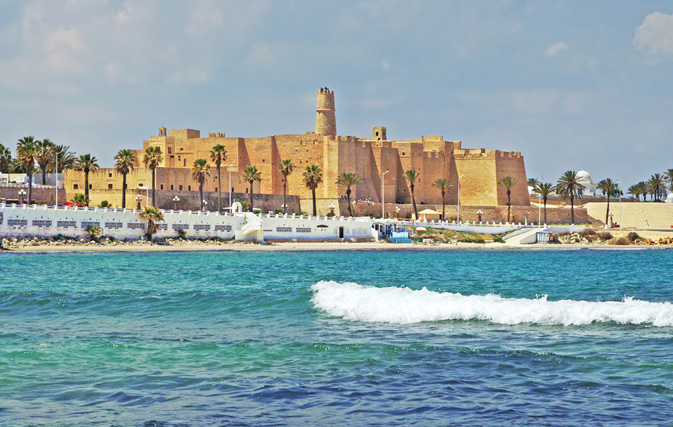The terror attack in Tunisia that killed 21 people is a fresh blow to the North African nation’s tourism industry, which has been struggling ever since the country’s revolution of 2011.
Cruise companies have been quick to cancel stops in the country as 17 of the victims at the Bardo National Museum in Tunis were passengers on shore excursions from two cruise ships in port that day.
As a result, the attack is likely to further hobble Tunisia’s struggling tourism industry, despite an online solidarity campaign using the hashtag #JeSuisBardo, French for “I am Bardo.” Some of those posting “Je Suis Bardo” on social media pledged to visit Tunisia this summer. The campaign echoed a slogan expressing solidarity with victims of a January terror attack on the French satirical newspaper Charlie Hebdo.
The country, which is two to three hours by air from most European capitals, also has some glorious sandy beaches, serves up top-notch food and is home to unique architecture.
But tourism numbers to Tunisia plunged after the revolution in 2011 that saw the overthrow of an authoritarian president and augured the so-called Arab Spring. Even though the country has set forth on a democratic path since, the number of tourists has never fully recovered.
A little more than 6 million people visited Tunisia last year, down 3 per cent from the previous year and 12 per cent lower from the nearly 7 million who went to the country in 2010.
French tourists have historically been prominent travellers to Tunisia but their numbers dropped last year by 6 per cent. And the outlook for this was already getting darker. Tunisia’s tourism minister complained in February that the attacks in Paris had spurred an “irrational” spate of cancellations.
And yet 2015 had begun with great promise for Tunisia’s tourism industry. National Geographic Traveler listed Tunis on its top 20 destinations for 2015, citing its “cultural energy,” festivals and yes, the Bardo museum, which is known for its range of antiquities.
In the immediate aftermath of Wednesday’s museum attack, it’s a little unclear to say how the cruise industry itself will be affected. The industry is only just shaking off memories of the 2012 Costa Concordia shipwreck off the west coast of Italy that killed 32 people, and a series of less serious but headline-grabbing power failures and illness outbreaks on other ships.
Mike Driscoll, editor of Cruise Week, said the attack is “not viewed as a black eye for cruising” because it’s not the cruise lines’ fault, and it didn’t happen on a ship _ unlike the horrifying 1985 murder of ship passenger Leon Klinghoffer by terrorists in Egypt.
Driscoll said the Tunis attack “occurred at a museum where others were involved and the travelling public sees a distinction.”
Tunisia, he added, is “not a major (Mediterranean) destination for North American travellers, so others I’ve talked with foresee minimal, if any, impact on business.”
Earlier this week, before the attack, executives at a cruise shipping conference in Miami were asked who, or what, was their greatest competition. Norwegian Cruise Line Holdings CEO Frank Del Rio said the biggest “threat is the geopolitical environment. We just cross our fingers that our ships aren’t there. Events you cannot control . that’s the biggest threat.”
